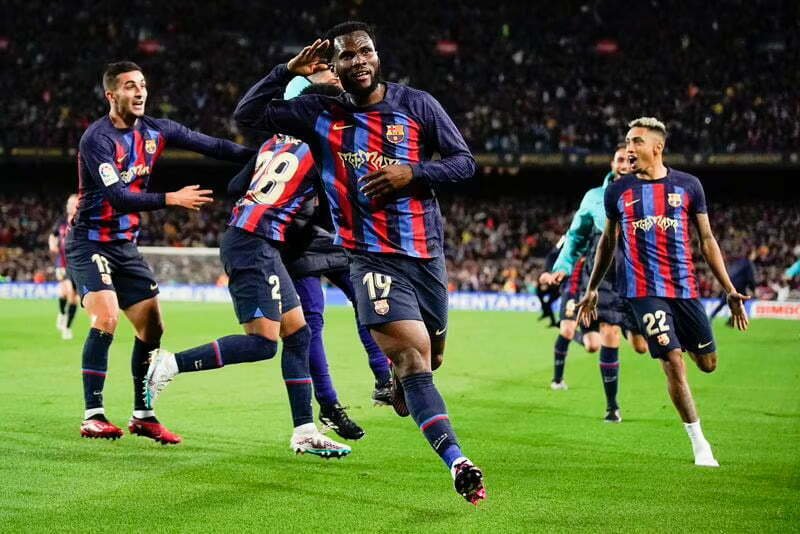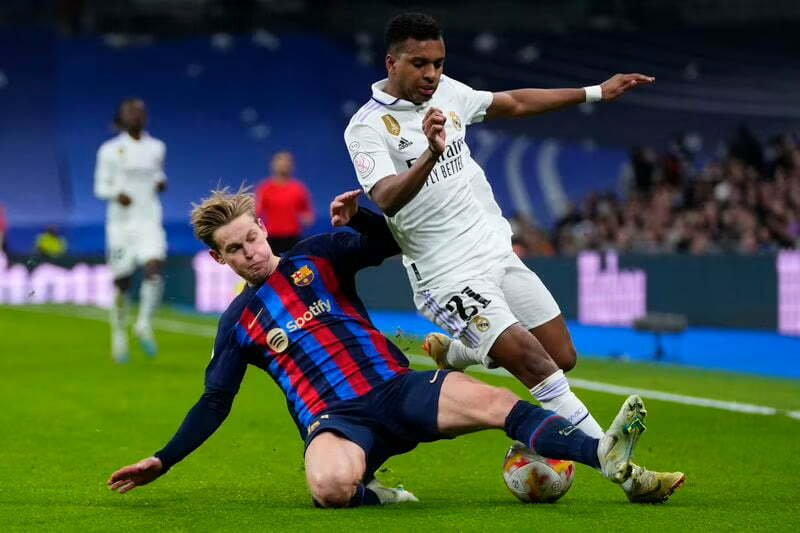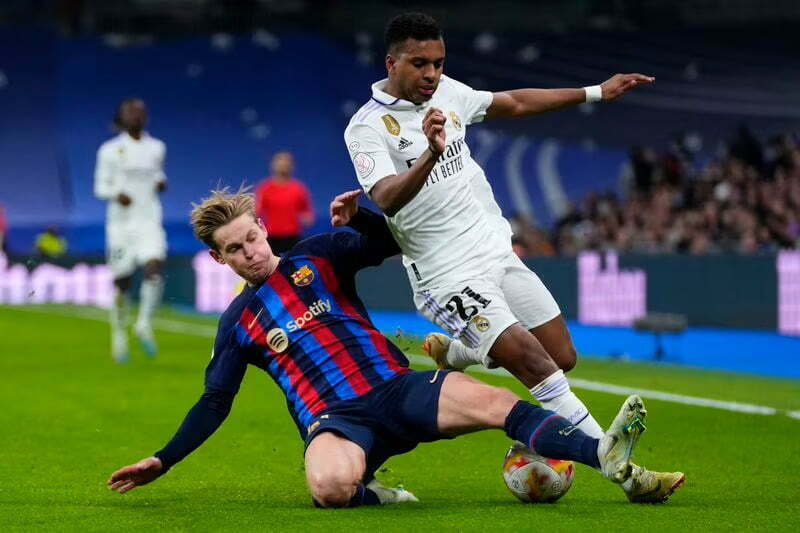Compared to other top soccer nations in Europe, the Spanish soccer system stands out due to its unique approach to incorporating B teams from major clubs into its pyramid. This means that with just one relegation, teams could go from competing against Villarreal’s first team to play against their B team. Similar to other countries like Germany, Portugal, the Netherlands, and the MLS in the United States, B teams are an integral part of the soccer pyramid in Spain.
These reserve sides line up in different divisions of Spanish soccer. One of the best examples is Villarreal’s B team, which is currently in mid-table in Segunda. Six clubs have B teams in the third tier, Primera RFEF, including Real Sociedad B, which narrowly missed out on promotion from the second tier last season. Other notable teams include Real Madrid Castilla and Barça Athletic, both in promotion contention but in different regional groups, as well as Celta B, Osasuna B, and Bilbao Athletic.

For many clubs, particularly Real Madrid and Barça, whose B teams are fighting for promotion, it poses a debate over the significance of these sides. A strong season can transform a youth-focused side project into a crucial revenue stream for the club. In some cases, it even creates new rivalries. Deportivo La Corua, who were in the Champions League knock-out stages at the turn of the century, suffered consecutive relegations in 2019 and 2020, dropping them to Primera RFEF. Here, they face their archrivals, Celta Vigo, but in the form of their B team. In March, 25,135 fans attended their meeting at Riazor, showcasing the level of interest generated by this unique system.
While the rise of B teams has been beneficial for many, it hasn’t always been good news for everyone involved. One clear example is that of Alvaro Rodriguez. Alvaro was promoted to the first-team set-up by Carlo Ancelotti at Real Madrid and even made an impact, registering an assist in his brief debut against Osasuna and scoring an equalizer in the Madrid derby against Atlético in late February. However, since then, he has played only four minutes of action and has not even made Ancelotti’s squad for the last five matches. Now, Alvaro is being given game time for Ral’s Castilla. In the two games he missed due to his first-team involvement, Castilla suffered their third and fourth defeats of the season.
With Rodriguez back in the lineup, the 18-year-old has become Ral’s first-choice center-forward. This strategic move prioritizes providing a boost to the second string rather than the first team. Of the potential advantages of promoting players from Castilla to Real Madrid’s first team, Forbes reported that while this would benefit Real Madrid in terms of retaining talented players, some critics are questioning whether it would be the best move for individual players like Alvaro. The publication notes that playing against more experienced opponents can be difficult, especially for young players.

It also suggests that while promoting players from Castilla to the first team may be good for the club as a whole, it may not necessarily be the best decision for individual players’ development. Accordingly, Forbes highlighted the potential for B-team coaches to advance their careers at higher levels of management. The example of Xabi Alonso, who coached Real Sociedad B before being appointed as Bayer Leverkusen’s coach in the Bundesliga, is given.
Xabi Alonso’s success in Germany has led to speculation that he could potentially replace Carlo Ancelotti as Real Madrid’s manager. It’s noted that Ral, who currently coaches Castilla, could be in competition with Alonso for the Real Madrid job, along with Alvaro Arbeloa, who manages Real Madrid’s Juvenil A youth team. Additionally, it’s mentioned that if Castilla can secure a promotion, Ral’s contract will be extended, keeping him at the club instead of moving to other interested teams such as Leeds United or Schalke.
And if the former center-forward Raul decides to transition to senior team management, he would be joining a growing list of B-team graduate coaches in Spain. This list includes Sevilla’s José Luis Mendilibar, who coached Athletic B in 1999/2000, Real Sociedad’s Imanol Alguacil, who led Real Sociedad B from 2014 to 2018, Athletic Club’s Ernesto Valverde, who was in charge of Athletic B in 2003/04, Cádiz’s Sergio González, who coached Espanyol B in 2014, and Valencia’s Rubén Baraja, who had a brief stint coaching Valencia Mestalla in 2013.
- Travel Hotel Manager Reveals Terrifying Reason You Should Never Use The Toiletries
- Brittney Griner To Miss Two WNBA Games To Focus On Mental Health
- Moment Cardi B Tosses Mic As Concertgoer Throws Drink At Her On Stage
- Messi Confirms He’s Going To MLS Club Inter Miami
- Prince Harry Says Rumors About James Hewitt As His Biological Father Is To Oust Him From The Royal

